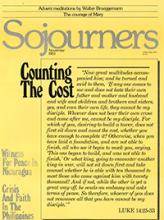"I wish that I could find the words to express my thanks." Nicaraguan Ambassador Antonio Jarquin spoke slowly to the crowd gathered in front of the Nicaraguan embassy. "But it is not only that I wish that I knew the English language better. Even in my own language it would be difficult to express what I am feeling. This is the greatest gesture of friendship that we have been given."
Jarquin cradled in his arms a huge bouquet of gladiolas as he continued. "Others shower our people with bombs, but you come offering flowers. We give you flowers in return." He handed over the bright bouquet to the crowd of North Americans gathered with the Nicaraguan embassy personnel to celebrate Central America's Independence Day, September 15.
The flowers we had brought—delicate hand-picked ones along with colorful store-bought arrangements—were a symbol of our friendship. There were other symbols that day. Bags of flour were given as a sign of opposition to our government's cutting off wheat sales and imposing other economic sanctions against Nicaragua. One nine-year-old girl and her dad offered a hundred-pound bag they had pulled to the embassy in a wagon.
But the major event was the giving of a "tractor for peace." Money had been raised to purchase a tractor, equip it for use in Nicaragua, and deliver it by Thanksgiving. The tractor stood in our midst, covered with flowers and surrounded with bags of flour.
The man who arranged the purchase climbed up on its seat and fumbled in his pockets for a moment. Ambassador Jarquin came to his aid, stepping forward with the keys. As the tractor was started up, a cheer went up from both North Americans and Nicaraguans.
Read the Full Article

